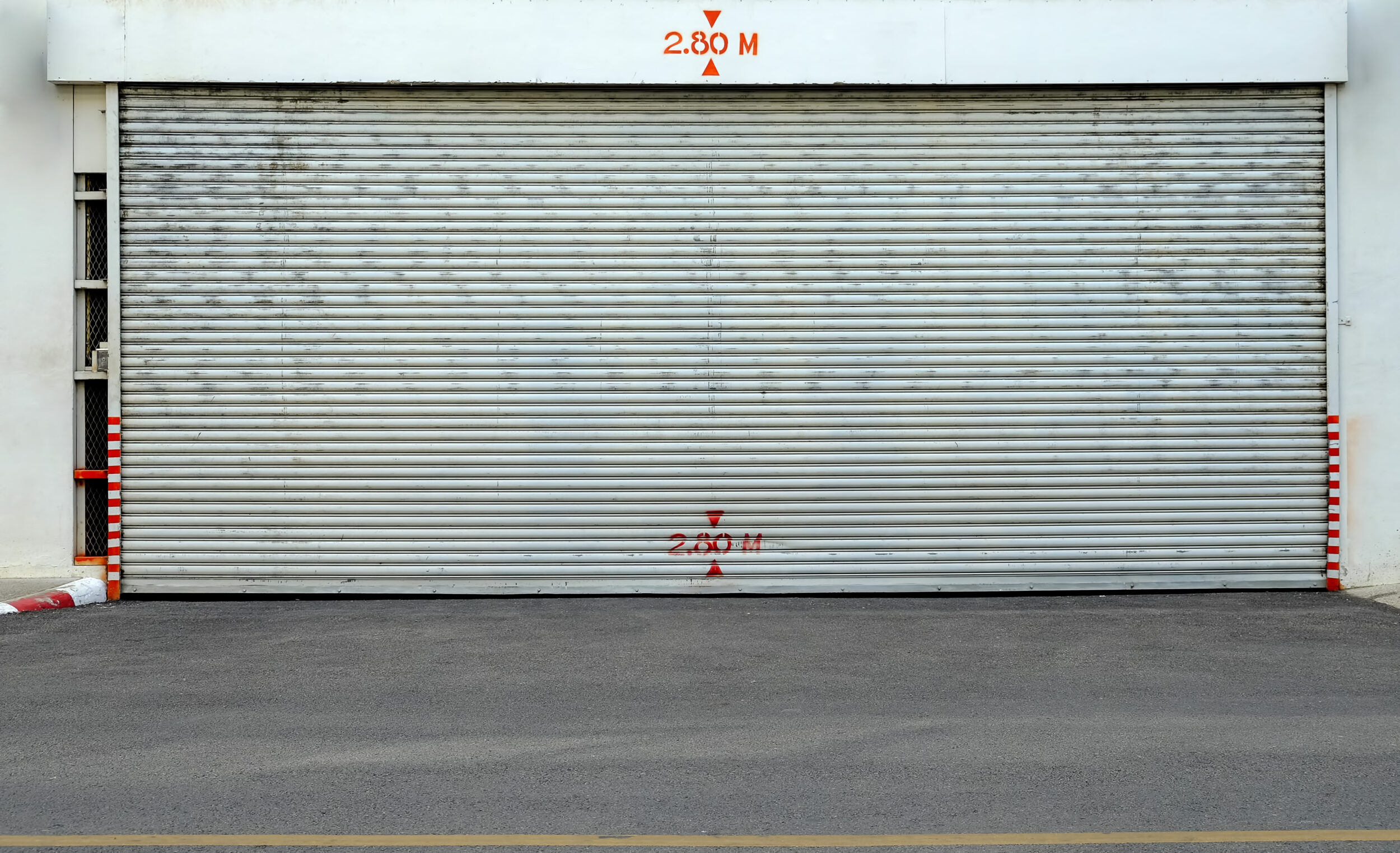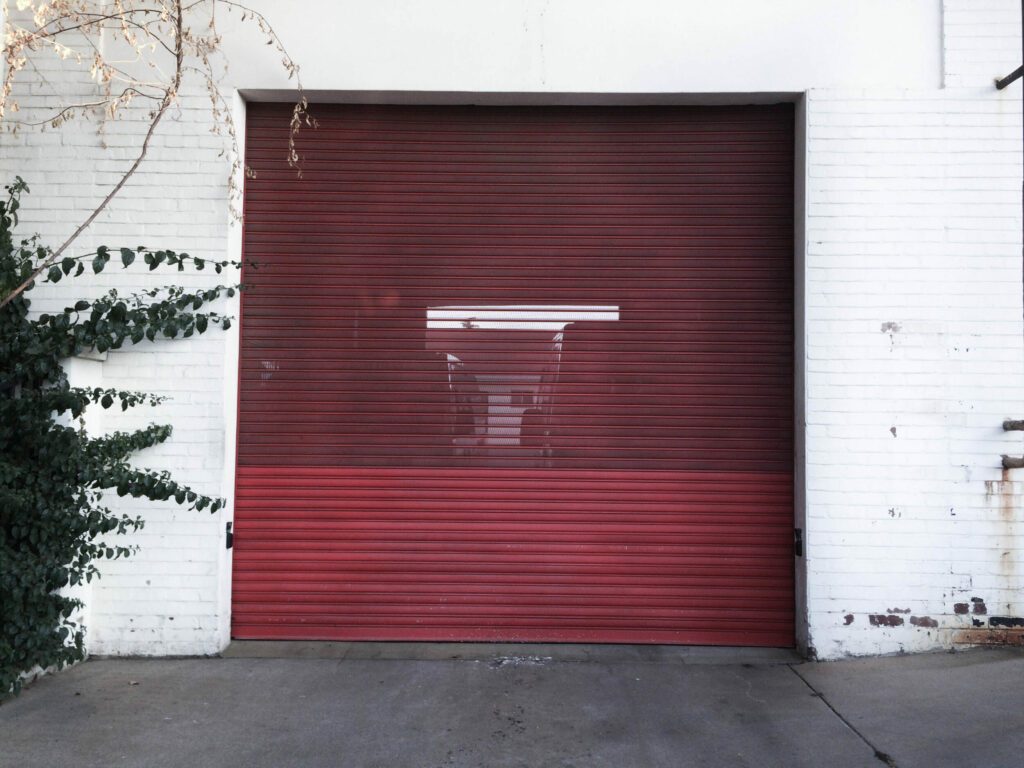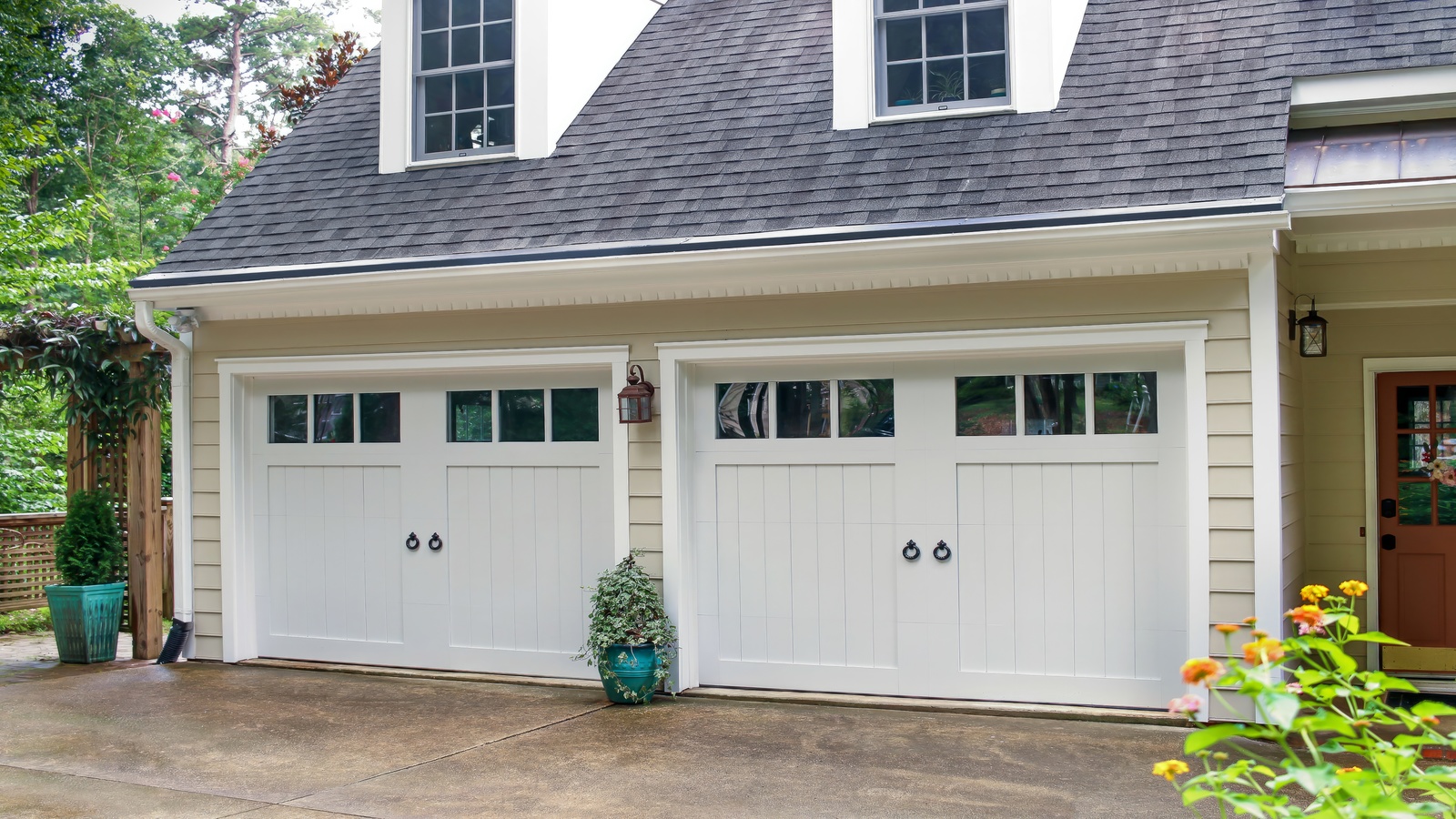
Noisy garage doors can be an annoying and concerning issue for many homeowners. The constant squeaking and rattling sounds can disrupt the peace of your home and, in some cases, indicate more serious underlying problems. It is essential to pinpoint the source of these noises and address them to restore your garage door's smooth and silent operation.
In this troubleshooting guide, we will discuss various causes of squeaks and rattles and methods for repairing them and preventing them from recurring.
The first step in troubleshooting a noisy garage door is identifying what’s causing the squeaking and rattling sounds. This step involves careful observation and manual inspection of the garage door system.
The best way to diagnose the noise source is by closely observing the door in action. Stand inside the garage with the door closed. Carefully listen as you open and close the door, paying special attention to when and where the noise occurs. Does the noise happen consistently or intermittently? Is it louder at the top, the bottom, or somewhere in the middle? Noting these details can help isolate the problem area.
Once you've gathered some preliminary information about the noise, it's time for a more hands-on approach. A manual garage door inspection can reveal potential problems that aren't apparent through observation alone.
Start by disconnecting the door from the electric opener. Typically, You can pull the emergency release cord, which is usually marked with a red handle. Once disconnected, manually open and close the door to see if the noise persists.
Look for worn-out or loose components such as hinges, rollers, and springs. Check for signs of uneven wear, rust, or damage. Shake the door lightly to see if it rattles, which could indicate loose parts. Inspect the condition of your door's tracks for signs of excessive wear or misalignment that are causing noisy garage door issues.
By carefully observing the door in operation and conducting a manual inspection, you can identify noise sources and understand whether the issue lies with the door itself or the automatic opener. This process will guide your next steps in repairing the squeaks and rattles, ensuring a more targeted and effective solution.
Once you've identified the noise source, it's time to tackle the squeaks in your garage door. Repairing squeaks typically involves addressing loose hardware, lubricating components, and inspecting and replacing worn-out parts. Follow these steps to prevent noisy garage doors.
Loose bolts, screws, and other hardware can often cause squeaking sounds as the door moves. Check each hinge, bracket, and other connecting points on your garage door using a wrench or screwdriver. Be sure to tighten any loose nuts, bolts, and screws without overtightening, which can cause the parts to bind or strip threads.
Proper lubrication is crucial to the smooth operation of a garage door, helping to reduce friction and noise. Apply a silicone-based lubricant or garage door-specific lubricant to all moving parts, including hinges, rollers, and tracks. Avoid using heavy oils or greases, as they can attract dirt and debris, causing more harm than good.
When lubricating, follow these general guidelines:
Hinges: Apply lubricant to the point where the hinge pin meets the hinge bracket. Rollers: Apply lubricant to the roller bearings, being mindful not to overdo it. Wipe away any excess lubricant to prevent dripping. Tracks: Wipe a thin layer of lubricant onto the inside of the vertical tracks. Do not lubricate horizontal tracks, as this can cause the door to slip and become unbalanced. 
Some squeaks may persist even after tightening and lubricating garage door components. In these cases, inspecting for worn-out or damaged parts is essential. Rollers and hinges are often the main culprits in these scenarios, and they may require replacement if they're badly worn or corroded.
Plastic or steel rollers can wear down over time, causing irregular movement and noise. Nylon rollers offer smoother and quieter performance, making them a popular choice for homeowners who replace their old, noisy rollers.
By tightening loose hardware, lubricating hinges, rollers, and tracks, and inspecting and replacing worn-out parts, you can silence those pesky squeaks and restore your garage door's smooth and efficient operation.
Garage door rattling often signifies loose or worn-out components, most commonly within the chain drive system and the opener's mounting points. These noises should be attended to prevent further damage promptly. Below are steps to minimize rattling in your garage door effectively.
If not appropriately maintained, chain drive systems can make a significant amount of noise. First, inspect the chain assembly for loose or detached links that could be causing the rattling. An overly loose chain will sag and create vibrations, while an overly tight chain can stress the motor. It's essential to adjust the chain to the appropriate tension level for both conditions. If your chain drive system is severely worn out, replace the chain or consider replacing the system with a quieter belt or screw-drive opener.
Rattling noises can often be traced to bad tension on various door components. Garage door springs and cables create tension to balance the door's weight. Over time, these springs and cables can wear out or need tension adjustments, causing rattling or vibrations. Always be cautious when dealing with these high-tension parts, and consider engaging a professional, as incorrect handling can be hazardous.
Rattling can also originate from the garage door opener, particularly from its mounting points. Installing rubber isolators or anti-vibration pads at these points can significantly reduce rattling. These isolators act as cushions between the opener and the mounting surface, reducing the vibration transmitted to the surrounding structure.
Addressing noisy garage door involves a multifaceted approach, including inspecting the chain drive system, adjusting the tension or replacing worn components, and installing vibration isolators on the opener's mounting points. Taking the time to tune these areas can drastically reduce the noise and extend the life span of your garage door system.
Although many noise issues can be resolved through DIY fixes, some situations may warrant professional intervention. Knowing when to call a professional and understanding the benefits of their services can save you both time and money in the long run.
If you've conducted the necessary steps of observing, examining, adjusting, and lubricating parts, but the noise persists, it could indicate a complex issue. Moreover, certain tasks, such as changing torsion springs or cables under high tension, can be dangerous if not handled properly. You should call a professional if you're uncomfortable performing these tasks or the problem seems beyond your understanding.
Similarly, if your garage door system is old and persistently noisy despite your best efforts, it could be a sign that you need a system upgrade. An experienced professional can provide knowledgeable guidance on whether repairing or replacing your existing system is more cost-effective.
When your noisy garage door starts acting up, it's tempting to tackle the problem on your own. However, there are several compelling reasons to opt for professional garage door repair services instead:
Engaging professional assistance when dealing with persistent or complex noisy garage door ensures efficient, safe, and effective solutions. The benefits of such services significantly outweigh the costs, particularly in terms of preserving the longevity and functionality of your garage door system.
Addressing troublesome noisy garage door system is essential for maintaining a comfortable and secure home environment. By taking a proactive approach that includes repairing and lubricating components, inspecting and replacing worn parts, seeking professional assistance when needed, and engaging in regular preventative maintenance, you can successfully minimize noise and enhance the overall performance of your garage door.
Moreover, these steps increase longevity, safety, and reliability, ensuring that your garage door provides a hassle-free experience for years. Don't let the rattles and squeaks control your peace of mind, take charge, and restore your garage door's quiet and efficient operation today.



with rope pulled, thus disengaging door moving, turning on chain driven garage door motor.....loud clunking noise coming from motor. More noise while lifting garage door than lowering. A rhythmic rather loud knocking noise. 3 years old home....used 2x daily.
Any ideas?